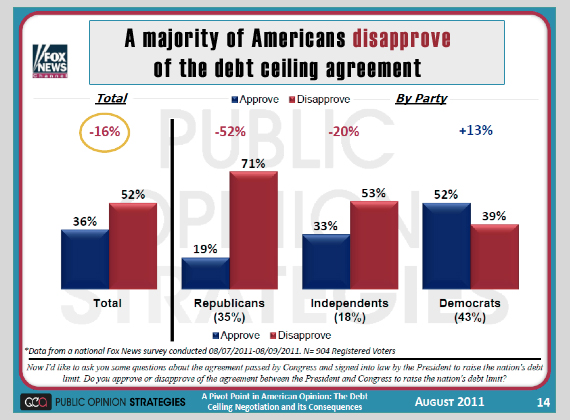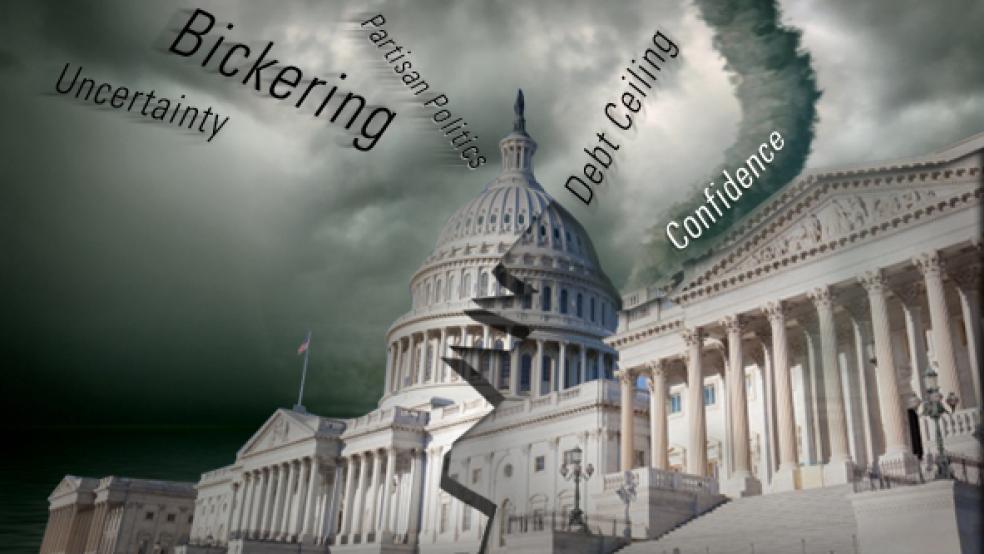With Hurricane Irene on the way, I went through the list of options: Should I spend a barrel of money and board up the windows of my house, assume we’d lose power and buy a generator, or leave the area all together? Hurricanes, unlike tornadoes, volcanic eruptions, and other natural disasters, give you plenty of time to prepare, thanks to the National Weather Service and a relentless media barrage that feeds on potential disasters in August when there’s often little or no major news.
Forecast: Uncertainty Undermines Confidence
Aside from moving outdoor furniture and stocking up on water and canned goods, the uncertainty over how the hurricane would play out caused me, my neighbors, and others in the Northeast to do…nothing. Uncertainty has a paralyzing effect on people, no matter the source. It has been affecting the country’s fiscal condition and economic recovery for months. Uncertainty over jobs, housing, taxes, the cost of the new health care plan, the impact of financial regulation, the value of the dollar, whether inflation will erode nest eggs, and mostly, whether the president and Congress will be able to come together and compromise on issues crucial to getting the country out of the doldrums.
The uncertainty drama played out last month during the debt-ceiling debate and took a lasting toll according to an analysis by Bill McInturff for Public Opinion Strategies.
‘The debt ceiling negotiation is an extremely significant event that is profoundly and sharply reshaping views of the economy and the federal government. It has led to a scary erosion in confidence in both, at a time when this steep drop in confidence can be least afforded.’
The debt-ceiling debacle that led Standard & Poor’s to downgrade America’s credit rating has also led to the fourth-lowest level of confidence since 1952—down from a paltry 59.2 to 44.5 according the Conference Board.

McInturff concluded, “This sharp a drop in consumer confidence is a direct consequence of the lack of confidence in our political system and its leaders”
Forecast: Incompetence Breeds Contempt
We did lose power during the storm last Saturday. On Sunday, we noticed that a broken tree limb had taken down the power line across the street. The cable was hanging in the middle of the street, the end lying on the ground. A police officer surveyed the scene—and then left. Not even a warning cone to alert drivers, joggers, and people walking their dogs. On Monday and Tuesday, still no power, and the cable remained in the middle of the street. But that night, the geniuses at the Long Island Power Authority made repairs and tested the system for 1O minutes. The test set off an electrical fire, with the blazing cable thrashing around in the middle of the street, according to the farmer who witnessed the fireworks. The next day, five repair trucks and about a dozen electric workers showed up to look at the problem. One man capped the cable—it took 15 minutes.
The farmer asked the guy which company he worked for. His answer: “I don’t work for anyone but the union.” Another neighbor, an MBA from Yale, had a similar cluster of trucks and workers reviewing a downed line after five days without power. As they started to leave she begged them to restore her power. They said they only worked 8-hour shifts and were going to have dinner. She said she hadn’t eaten a real meal for days so they invited her to join them. After two bottles of wine and a sumptuous roast beef dinner, she thanked them profusely . “Thank us? We thank you,” they replied. “We’re getting triple overtime and all expenses paid.”
When competent people perform incompetently because they’re motivated by the wrong incentives, people get angry. They’re angry at Washington—Congress in particular--although no one has accused Congress of competence for years. Placing their political party before the best interests of the country is a violation of the public trust, but that’s the way people see Congress on both sides of the aisle. And for President Obama and all the GOP hopefuls, placing fundraising and reelection before the needs of the country is another back-handed slap at citizens. They’re angry at Big Business and Big Labor, at rich people for not having to worry about sending their kids to college, at poor people for taking instead of giving. But mostly, they’re angry at Republicans for picking a fight over a deal that most would have grabbed, and at President Obama for not responding with the authority and gravitas that it takes to instill confidence.

Forecast: Cloudy with a Chance “The Sky Is Falling”
Like Hurricane Irene, the economic storm that hit the country requires a serious commitment of cooperation to repair the damage. If Washington politicians continue to bicker over petty things like when the president should deliver a speech, we’ll be using chewing gum to make the repairs instead of glue. We need real teamwork if we’re ever going to get our power back.






